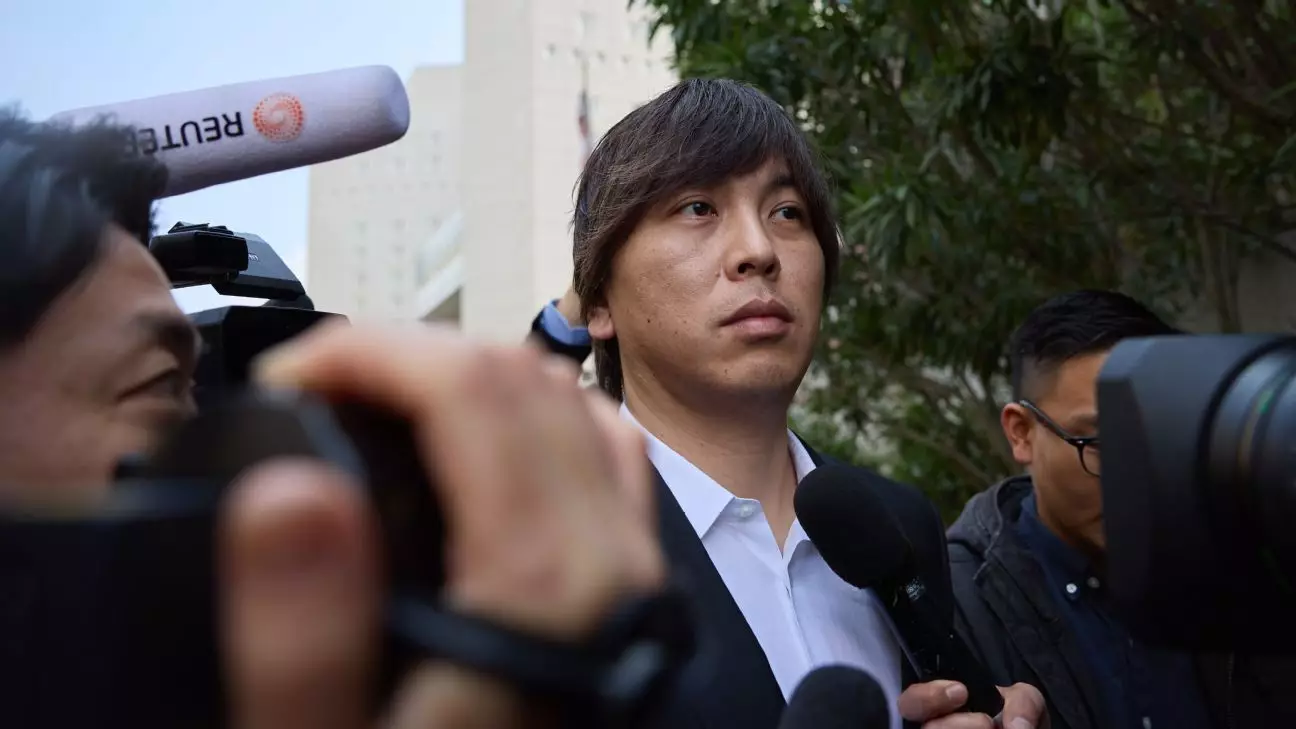The case involving Ippei Mizuhara, the former interpreter for baseball star Shohei Ohtani, recently drew attention due to allegations of fraud and theft linked to gambling debts. As Mizuhara approached his sentencing date, the atmosphere surrounding the case intensified with both legal arguments and statements from the parties involved. He stood accused of stealing significant sums from Ohtani, who plays for the Los Angeles Angels, to reimburse gambling debts that he had allegedly accumulated over time.
In this complex case, federal prosecutors assert that Mizuhara’s claims regarding a gambling addiction are unsubstantiated. Their investigation found no evidence to support Mizuhara’s characterization of himself as a habitual gambler. Despite his assertions, the prosecutors argued that his explanations serve more as a shield to mitigate the consequences of his actions rather than reflect an accurate portrayal of his behavior.
Federal prosecutors have responded robustly to Mizuhara’s claims of remorse and alleged gambling addiction, asserting that their extensive background research highlights a lack of evidence supporting his arguments. They pointed out that Mizuhara’s claims hinged primarily on unverified personal accounts, pointing out the inherent flaws in self-reported struggles with addiction. The prosecution’s filings emphasized that many defendants tend to express regret at the time of sentencing, yet a crucial determination lies in distinguishing between genuine remorse and an awareness of the legal repercussions of one’s actions.
Investigators revealed that while Mizuhara registered with gambling platforms like FanDuel and DraftKings, his gambling activity was minimal until after he began pilfering funds from Ohtani’s account. Evidence produced showed that his gambling consisted of placing scattered bets with relatively small values. Prosecutors contended that it wasn’t the gambling debts that compelled him to commit fraud; rather, the decision to embezzle came when Mizuhara already demonstrated financial stability.
As part of their defense, Mizuhara cited personal financial difficulties, claiming to live paycheck to paycheck while paying heavy rents in Newport Beach and maintaining obligations in Japan. However, prosecutors assert that this representation does not correspond with the financial behavior he displayed during the period in question. Court documents reveal that Mizuhara had sufficient funds in his bank accounts to cover his expenses but opted to use Ohtani’s finances without permission.
In a further analysis of Mizuhara’s financial transactions, prosecutors famously produced records indicating that he utilized Ohtani’s debit card for personal expenditures, thereby establishing a pattern of deceit. They reiterated that Mizuhara was not under significant financial strain but instead chose to enrich himself unlawfully at the expense of a successful athlete.
The upcoming sentencing on February 6 promises to be a significant moment in this case. While Mizuhara has requested an 18-month sentence, prosecutors are advocating for a more severe sentence of approximately five years. Their request stems from what they characterize as a widespread and intentional breach of trust, compounded by the magnitude of the theft, which reportedly aggregated millions of dollars.
The case is emblematic of larger trends where personal relationships in the professional arena can fuel complicated dynamics leading to betrayal. Mizuhara’s actions underscore a potential conflict of interest where personal gain supersedes ethical obligations to a client. The instance brings not only legal ramifications but also significant reputational damage to both parties involved.
This incident raises broader questions about the ethics of gambling, the obligations of personal representatives, and the potential pitfalls of financial mismanagement. It highlights the necessity for heightened oversight and more robust frameworks to protect athletes from similar exploitation, particularly in sports where large sums of money intersect with personal relationships.
As this legal journey evolves, awareness and discourse surrounding the ethical and financial responsibilities of interpreters and personal managers in sports continue to grow. This case could prompt discussions about reform and restructuring in how financial managers are vetted and monitored, especially those in industries rife with tempting opportunities for misconduct.
The case against the former interpreter has exposed the darker side of personal and professional relationships in sports. As Mizuhara grapples with the consequences of his actions, the implications of this case resonate on multiple levels, cautively issuing a warning to others occupying similar positions in the sports industry.


Leave a Reply